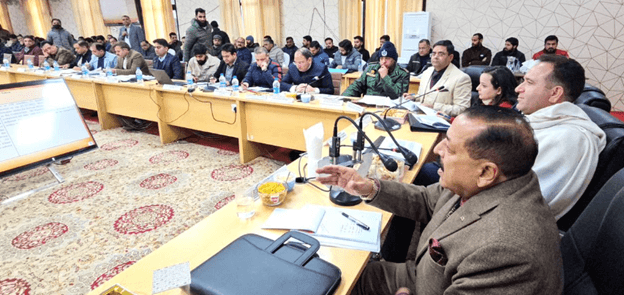Developed economies looking forward to India’s G20 Presidency, says Schulze
India is a global partner for Germany, the EU and the G7, and the world’s most advanced developed economies have pledged support to the fastest growing South Asian economy climate agenda.
“We are very serious about a real long-term cooperation with India to achieve the Paris Climate Goals, the SDGs and in particular a just energy transition in India,” the German Federal Minister Svenja Schulze said through a video conferencing at the inaugural meeting of NITI Aayog and German Federal Ministry for Economic Cooperation and Development (BMZ) held 5 Sept 2022.
“An important basis for the long-term GSDP is to discuss and agree on transformational concepts and policies, be it in the energy transition, sustainable mobility, climate resilience or the agro-ecological transformation,” Schulze told the inaugural NITI-BMZ Dialogue of Development Cooperation.
“We are very much looking forward to the Indian G20 Presidency in 2023 and are ready to support India for a strong agenda on climate action and sustainable development.”
In support of a green and sustainable development partnership, Schulze announced an additional funding of EUR3.5 million, specifically for strengthening of implementation of SDGs and climate action at the level of Indian states.
NITI Aayog Vice Chairman Suman Bery responded, “Germany is one of India’s most important partners.
“Indo-German partnership is as an example of success in a complex world. NITI-BMZ Dialogue in Development Cooperation will help our two nations realise our potential in embedding climate action in the SDGs, energy, emerging technologies and agro-ecology.”
On 2 May 2022, India and Germany signed a Joint Declaration of Intent on Partnership for Green and Sustainable Development (GSDP).
During the last G7 summit in Schloss Elmau in June 2022, India and the G7 had agreed to work towards a Just Energy Transition Partnership (JETP).
The 5 Sept 2022 Dialogue laid down a pathway to strengthen mutual cooperation between the two countries, particularly to reconcile the imperatives of dealing with climate change with the goals of Agenda 2030.
The NITI-BMZ Dialogue focused on five core areas of cooperation: Sustainable Development Goals (SDGs), climate action, energy transition, emerging technologies and agro-ecology.
Both sides deliberated ongoing engagements and identified potential cooperation in areas that can produce tangible outputs and learnings for India and Germany.
India’s forthcoming G20 Presidency is of particular relevance in this regard, they said.
Bery drew attention to the Prime Minister Narendra Modi’s focus on individual responsibility for sustainable behaviour, embodied in his Lifestyle for Environment (LiFE) initiative. fiinews.com









